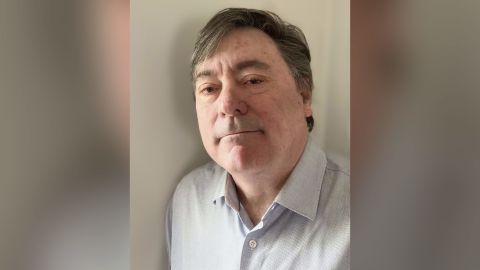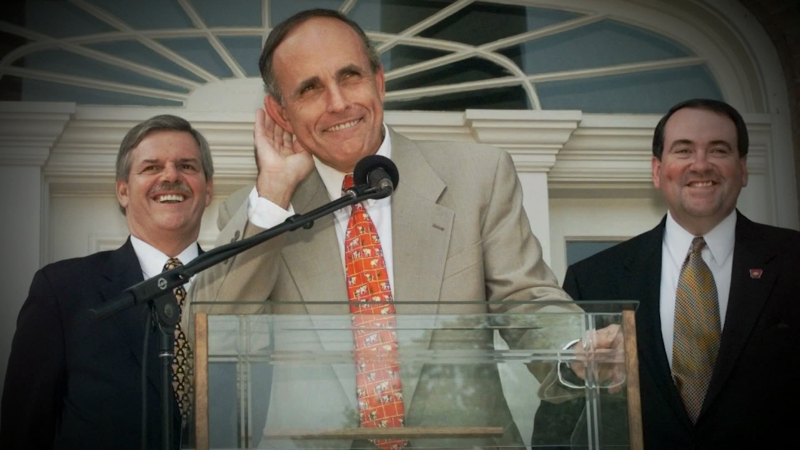Editor’s Note: John Marks is the showrunner of “Giuliani: What Happened To America’s Mayor?” A former 60 Minutes producer and US News & World Report correspondent, Marks has worked most recently as a staff showrunner and director at Left/Right, a New York based production house, for a variety of cable and streaming networks. The views expressed in this commentary are his. Read more opinion on CNN. Watch “Giuliani: What Happened to America’s Mayor?” on CNN Sunday at 9 and 10 PM ET/PT.
CNN
—
My father, a lawyer, once told me he hated movies about the law. With one exception, they were always false in one way or another. Yet the exception spoke to him profoundly, to his years as a defense attorney in the civil courts of Texas. That was 1982’s “The Verdict,” starring Paul Newman, directed by Sidney Lumet with a screenplay by the playwright David Mamet. Newman plays an alcoholic ambulance chaser named Frank Galvin, who finds himself suddenly giving a damn about justice in the midst of a case that should have been open and shut.

“The Verdict” is a movie about redemption. Newman’s closing argument is a confession about his own loss of faith in the law. Framed in a wide shot that shows the lawyer, the jury, the judge, the grain of the wood of the court itself, the symbolism of American justice becomes visible.
That image came back to me so many times over the last year and a half as I worked on a CNN documentary series about another lawyer – former US Attorney, former New York Mayor and former counsel to President Donald Trump, Rudolph Giuliani. I thought about Giuliani, and then I thought of this scene and what it meant to my father.
We tend to think of Giuliani in his capacity as mayor, as indicated in the subtitle of the series, “What Happened To America’s Mayor?” – but for most of his life in government and in private practice, the mayor was a lawyer, at one time, by all accounts, a great one. He started there, and it seems likely he will end there. At this time, his law license has been suspended in New York and Washington DC.
Read through this lens, can the story of Giuliani be seen as the tale of a lawyer who lost faith with the law, like the character in “The Verdict,” but without the Hollywood ending? When we ask what happened to him, how one of the most admired (and among some, feared) leaders in modern American history became a target of federal, state and professional investigations, is that the answer?
In the last few weeks of 2022 alone, Giuliani generated one more tumbling wave of negative publicity. He was up before the DC Bar and under investigation by a grand jury in Georgia for trying to overturn an election. When the House January 6 committee referred Trump to the Justice Department for potential prosecution, Giuliani and five other Trump allies were named as potential co-conspirators. After the release of the executive summary of the committee’s final report, a spokesman for Giuliani denied in a statement to CNN aspects of how the report depicted Giuliani, describing him as “an honest, good American who has dedicated his life to serving others and doing the right thing.”
These post-January 6 headlines don’t tell a story of redemption, far from it, but they do punctuate a very different set of headlines far back in Giuliani’s past – reminders of that moment, 20 years ago, when in the face of unprecedented tragedy, he revealed an astounding capacity for leadership that surprised even his harshest critics.
On September 11, 2001, after two terms as a wildly successful, divisive and often self-destructive mayor, Giuliani was recast in a single day as a hero and emerged for a single moment as the most compelling leader in the United States. If that’s not a Hollywood ending, I don’t know what is. Had the story ended there, as political strategist Rick Wilson says in the documentary, schools would have been named after Giuliani.
In the moral economy of public life, does the earlier moment redeem or somehow balance the latter? Certainly, as we found in interviews for the documentary, there are old friends and allies who remain in awe of Giuliani’s behavior in those weeks, loyal to that man and his memory. Others always considered 9/11 the aberration and see 1/6 as a reversion to form.
Early on, Giuliani had a sense of civic duty. His Catholic upbringing in Brooklyn gave him a moral compass, and his Jesuit education gave him a sense of intellectual engagement and responsibility. He had a certain native ferocity that struck a familiar chord in a lot of New Yorkers.
As a young prosecutor, rooting out police corruption, as US Attorney for the Southern District, busting the mob and perp-walking white collar criminals, and as the law-and-order mayor, Giuliani displayed a fearless and often abrasive sense of moral rectitude. If he believed a thing, he implied at his press conferences, it must be right.
At his thorniest, in the New York era, especially in the wake of the police killings of Amadou Diallo and Patrick Dorismond, that sense of narcissistic rectitude could make Giuliani sound like a heartless bully with a racist bent or at the very least a political opportunist who would dog-whistle at racism as soon as the political moment required it. Certainly, many Black New Yorkers saw him that way.
In his finest hour, on the other hand, in the aftermath of the 9/11 attacks, Giuliani’s rectitude was softened by a sense of overwhelming tragedy. More than his actions, his demeanor seemed to reinvent him as a rare thing on the American stage, a wholly noble figure above and beyond politics.
Yet the dark side of power, so evident in Giuliani’s post-Trump behavior, always gripped the former mayor’s imagination – as another, very different movie about law and order suggests. Giuliani’s favorite film for years was Francis Ford Coppola’s mafia epic “The Godfather.” In the documentary, GOP pollster and political consultant Frank Luntz talks about watching it with Giuliani in a basement room of City Hall known as “The Lair.”
“He sits behind me,” Luntz recalled, “and during the entire movie he explains why the life of politics is the life of the Godfather. And, of course, in the one story where Sonny explains to the Godfather that they should be selling drugs, and you see this battle within the family, Rudy starts tapping me on the shoulder, saying, ‘Do you see, do you see? When you have a disagreement, you keep it in the family.’”
A lot of people love that movie, but few end up looking like a key architect of the most serious sedition case in modern American history. Connecting the dots between these educational screenings of “The Godfather” and January 6, one could imagine a vision of the law that makes it solely the tool of whoever wields power, sort of the opposite of the vision in “The Verdict.”
When Newman’s character makes his closing argument before the court, speaking the lines written by David Mamet, he speaks as someone who has rediscovered the law as salvation, and diagnoses the failure that has brought him to this point. “We think of ourselves as victims, and we become victims. We become…we become weak. We doubt ourselves, we doubt our beliefs. We doubt our institutions. And we doubt the law.” And then he proposes the solution: “In my religion, they say, “Act as if ye had faith, and faith will be given to you.” If…if we are to have faith in justice, we need only to believe in ourselves. And act with justice. See, I believe there is justice in our hearts.”
That scene is the law, my father said, explaining his regard for the movie. The essence of it: the advocate, the people, the process by which the rule of law unfolds.
Giuliani’s story is not a movie, of course. It’s real life, and no life, extraordinary or otherwise, is easy to measure from the outside. We cannot know what lies in his heart. Yet there is a clear chasm between the Giuliani of September 11, 2001, and the man of January 6, 2021. In the winter of 2023, it is hard to see anything like a Hollywood ending, public or private, on the horizon. It is hard to detect in the latest headlines about this lawyer an opening of redemptive light that might pave the way.







More News
Zendaya Is No Stranger to the Met Gala Red Carpet. But It’s Been a While.
Was the Stone Age Actually the Wood Age?
Trump’s Scandals Captivate the Courtroom, but Case Hangs on Dry Details